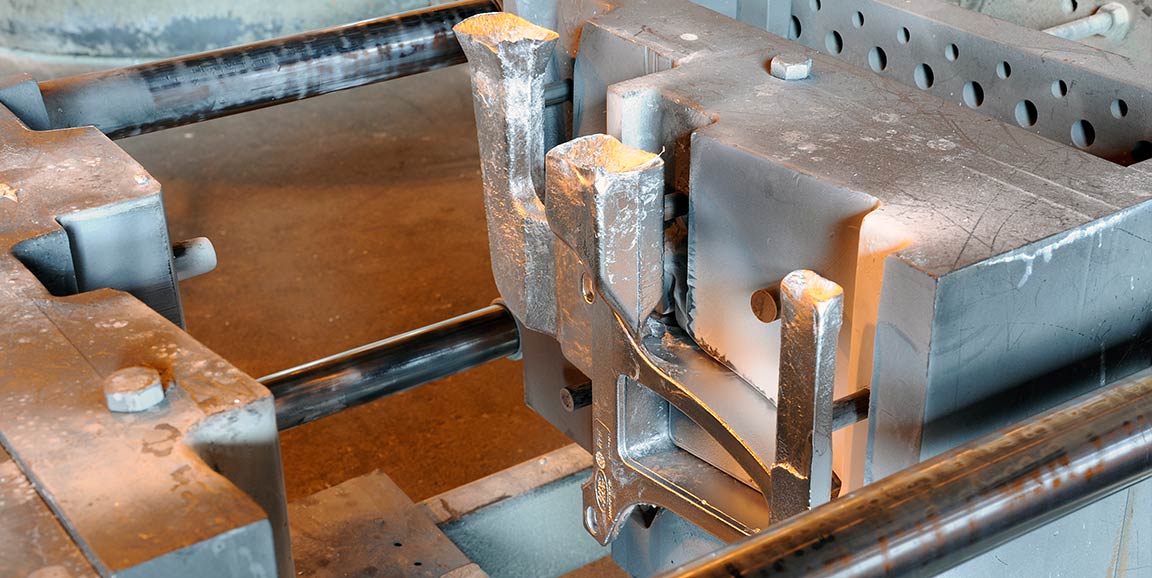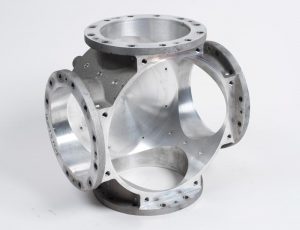The Ultimate Guide to: Aluminum Foundry Techniques and Their Applications
Wiki Article
Discover the Benefits of Aluminum Casting in Modern Manufacturing
Aluminum casting has actually become a crucial procedure in modern-day production. Its light-weight yet robust nature provides substantial advantages for various markets. The ability to accomplish intricate designs and preserve tight resistances contributes to its allure. Aluminum Foundry. Additionally, the cost-effectiveness and ecological benefits make it a sustainable selection. As manufacturers look for innovative solutions, the function of aluminum casting continues to advance. What certain applications and advantages wait for exploration in this dynamic area?Lightweight Yet Strong: The Benefits of Aluminum
Lots of products are used in production, aluminum stands out due to its remarkable mix of light-weight properties and outstanding toughness. This special characteristic makes aluminum a perfect selection for numerous applications, specifically in industries such as auto, aerospace, and building. Its reduced density enables simpler handling and transportation, adding to lowered power consumption throughout production and assembly procedures.Aluminum's strength-to-weight proportion is remarkable, allowing makers to develop durable components without adding unnecessary mass. This characteristic is specifically beneficial in fields where weight reduction can result in enhanced gas efficiency and overall performance. Furthermore, aluminum's resistance to corrosion improves the longevity of items, further strengthening its appeal in modern-day manufacturing.
Inevitably, the light-weight yet strong nature of aluminum positions it as a favored material, fostering development and effectiveness throughout multiple markets. Producers progressively acknowledge that these benefits can result in substantial developments in design and functionality.
Precision and Complexity in Style
As makers welcome the abilities of aluminum casting, they uncover brand-new opportunities for precision and intricacy in design. This manufacturing procedure permits the development of detailed forms and thorough functions that traditional approaches usually battle to attain. The fluidness of molten aluminum allows it to load intricate molds, leading to elements with limited resistances and fine surface area coatings.This precision is specifically valuable in sectors such as aerospace and automotive, where exact specs are crucial for performance and safety and security. Aluminum casting also accommodates ingenious layouts that boost performance without compromising structural integrity.

Cost-Effectiveness and Performance
Cost-effectiveness and effectiveness are vital considerations for producers checking out aluminum casting as a production approach. Aluminum casting deals considerable price advantages as a result of its lower product costs contrasted to various other metals (Aluminum Casting Company). The light-weight nature of aluminum minimizes shipping and handling expenditures, and its exceptional thermal conductivity permits quicker cooling times throughout the casting process, enhancing overall production speedAluminum's flexibility allows makers to create intricate shapes and designs, minimizing the requirement for extra machining or assembly. This streamlining of production not just lowers labor costs but likewise shortens lead times, allowing companies to react promptly to market demands.
Furthermore, the durability and rust resistance of aluminum castings add to longer product lifespans, reducing replacement prices in time. Therefore, producers can achieve a balance of premium outcome and reduced operational expenditures, making aluminum casting a significantly appealing option in contemporary production.
Ecological Sustainability of Aluminum Casting
Aluminum casting stands out as an eco sustainable manufacturing alternative, especially as a result of its recyclability and decreased environmental footprint. The process enables for the efficient use of aluminum, a product that can be reused indefinitely without shedding its residential or commercial properties. This particular considerably lowers the need for virgin aluminum, thereby preserving natural sources and lessening power usage related to extraction and processing.
Applications Across Industries: From Automotive to Aerospace
While diverse markets continue to seek innovative products for production, aluminum casting has actually verified to be a flexible option across sectors such as automotive and aerospace. In the automotive sector, aluminum castings add to lightweight car layouts, boosting fuel efficiency and performance. Components like engine blocks, transmission real estates, and wheels benefit from aluminum's strength-to-weight proportion.In aerospace, aluminum casting plays a considerable function in creating complicated components that require high longevity and low weight. Airplane parts such as brackets, landing equipment, and architectural frameworks utilize aluminum for peak performance and security.
Furthermore, the adaptability of aluminum casting permits it to provide to various other industries, including customer electronic devices, aquatic, and industrial equipment. This adaptability not just meets the specific requirements of numerous applications however also sustains ongoing development in manufacturing processes. As an outcome, aluminum casting continues to be a principal in contemporary production throughout numerous fields.
Regularly Asked Inquiries
Just How Does Aluminum Casting Compare to Other Steel Casting Procedures?
Aluminum casting deals premium strength-to-weight proportions, faster cooling rates, and exceptional corrosion resistance contrasted to other steel casting procedures. These benefits make it suitable for different applications, improving efficiency and performance in manufacturing.What Are the Regular Lead Times for Aluminum Casting Projects?
Normal lead times for aluminum casting jobs range from two to eight weeks, depending on aspects such as complexity, order size, and production ability. Efficient preparation can help reduce delays and enhance task timelines.Can Aluminum Casting Be Made Use Of for Intricate Layouts?
Aluminum casting can certainly suit complex designs. Precision aluminum casting. Its fluidity enables for comprehensive patterns and forms, making it appropriate for intricate components in different markets. This flexibility improves style flexibility while maintaining architectural integrity and performanceWhat Post-Processing Options Are Readily Available After Aluminum Casting?
Post-processing choices for aluminum casting consist of machining, polishing, surface treatments, anodizing, and welding. These strategies boost the surface, boost dimensional accuracy, and boost deterioration resistance, consequently optimizing the final product's performance and aesthetic charm.Just How Do Temperature Level Adjustments Influence Aluminum Casting Quality?
Temperature modifications greatly impact aluminum casting high quality by affecting fluidness, solidification prices, and possible defects. Rapid air conditioning can lead to raised brittleness, while too much warmth might cause warping or insufficient filling of molds during casting.Aluminum casting has emerged as a pivotal procedure in modern-day production. As manufacturers welcome the capabilities of aluminum casting, they discover new avenues for precision and complexity in design. website Aluminum casting procedures commonly produce fewer greenhouse gas emissions contrasted to other metal casting techniques. While varied markets continue to seek innovative materials for production, aluminum casting has shown to be a functional solution across markets such as automobile and aerospace. In the auto market, aluminum spreadings contribute to lightweight automobile designs, improving fuel effectiveness and performance.
Report this wiki page